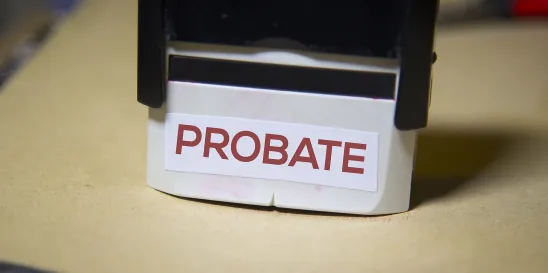Selling real property is generally the most time-consuming aspect of probate estate administration. Unlike intangible assets, such as money in a bank account, real property has ongoing expenses like utilities, insurance, general upkeep and perhaps a mortgage. The longer it takes to list and sell a property, the more it will cost the estate and the less money the legatees will receive. The most important step you can take, though, is to avoid probate altogether. Probate is time consuming, expensive and invasive. Proactive planning, like titling the property in trust or as joint tenants, for example, can save you and your loved ones time, money and a lot of headaches.
In this case, let us assume that that did not happen and you are compelled to open probate. This article may act as a guide as to what steps to take regarding the real estate before and after probate opens.
- Open probate as soon as possible. Court time is slow time and probate is no different. Preparing, executing and filing court documents takes time. Once filed, you may get a court date up to two months out. Depending on the circumstances, your attorney may recommend opening the estate up as an emergency, which will add an additional cost. Generally, you cannot take any steps with respect to the real property until you are appointed as personal representative.
- Identify any liabilities, including mortgages, on the real estate. If there is a mortgage on the property, you or your attorney should notify the mortgagor that the mortgagee (the decedent) has died. To a lesser extent, you should also identify all outstanding utilities due regarding the real estate. Insurance is also a complicated aspect. The property will need to continue to be insured, but depending on whether and how long the property may be vacant, it may become necessary to obtain an insurance vacancy rider, which can be extremely expensive and difficult to obtain.
- Inventory personal property and clean out the real property. Once you have obtained Letters of Office, it is your job to inventory tangible personal property and to distribute it to those legatees who have an interest in it. Everything else can generally be donated or discarded. Do not underestimate how long this process will take.
- Identify a realtor whom you trust. You can perhaps identify a realtor prior to being appointed, but you cannot sign a listing agreement until you have Letters of Office. Finding a realtor before you are appointed will save you valuable time later.
- Obtain a comparative market analysis (CMA) or appraisal. CMAs and appraisals determine the value of the real estate and inform you of the market value of the property. Listing the property at or above the market or appraised value will protect you, as personal representative of the estate, from liability and potentially reduce capital gains tax at sale.
- Obtain an Employer Identification Number (EIN) and open an estate bank account. An EIN is akin to the social security number for the estate. You can obtain an EIN for free through the IRS upon obtaining Letters of Office. Once you have the EIN, you should open an estate bank account at a bank with a physical presence in Illinois. Any proceeds from the sale of the real estate will be deposited into the estate account.
Many of these steps are unavoidable regardless how the home is titled. Even so, we still generally recommend avoiding probate. Probate adds needless delays and incurs an avoidable expense.
Please talk with your estate planning attorney regarding whether your real estate should be retitled. In most circumstances, you and your family are better served by not going to court over your real estate.




 />i
/>i

